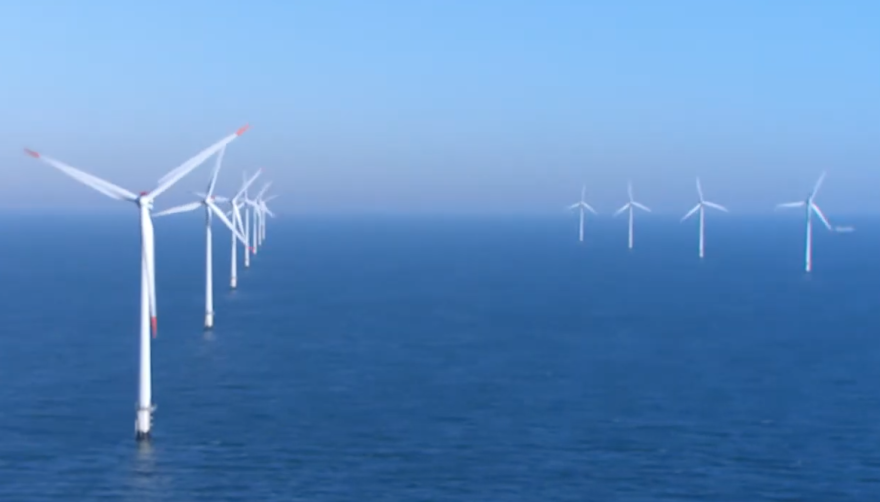The fisheries have concerns about the rapid development of offshore wind farms and what remains unknown about how fish will be affected by wind energy technology.
A new report on the intersection of the fisheries and offshore wind from the Responsible Offshore Development Alliance (RODA) outlined some of the concerns.
Fiona Hogan is RODA’s Research Director and the paper’s lead author.
The report highlights uncertainty about the noise produced from wind turbines. Hogan said it’s still not clear how fish will react.
“We’re not sure what the overall net impact of the full build-out across these areas will have in terms of noise output and how fish species might respond to that directly,” she said.
The question of whether fish could change location because of offshore wind development came from another problem included in the paper.
Hogan said some wind farms may need to put in rocks or concrete along the seabed to prevent erosion around the bases of turbines.
However, installing those hard surfaces could affect fish species. Some fish prefer hard-bottom surfaces, so changes to parts of the seabed would give those fish an advantage over the fish that prefer sandy-bottom surfaces.
Hogan said fisheries workers are also worried the gear they drag over the seabed could get caught on those hard materials.
“If they’re actively towing it along the bottom, if they get caught, or hung up on some obstruction, that poses a definite risk to the vessel.”
Electromagnetic (EMF) fields from the undersea cables running from the wind farms also pose questions about impacts on fish.
A study found that haddock larvae behave differently when they’re close to EMF.
Not all the issues in the report are potential, some problems have already arisen. The paper explains how wind farms are affecting the data that’s used to shape fishing regulations.
Hogan said it’s been deemed unsafe for some research vessels to operate near wind farms because of how large the ships are and how much space there is between turbines.
As a result, some vessels that conduct fishing surveys have limited access to areas that would have previously been included in their findings.
This affects the fisheries because those surveys are used to help figure out stock assessments of fish.
Hogan said the less confidence there is in fish population numbers, the more likely it is fisherman will see tougher regulations.
“Yet another concern for the fishing industry, because as you increase uncertainty in stock assessments, it usually leads to lower quotas.”
NOAA Fisheries and the Bureau of Ocean Energy Management (BOEM) recently put out a strategy to help reduce these impacts on fishing surveys.
The RODA reports recommends more cooperative research so the fishing industry is included as construction of more offshore wind farms get underway.








